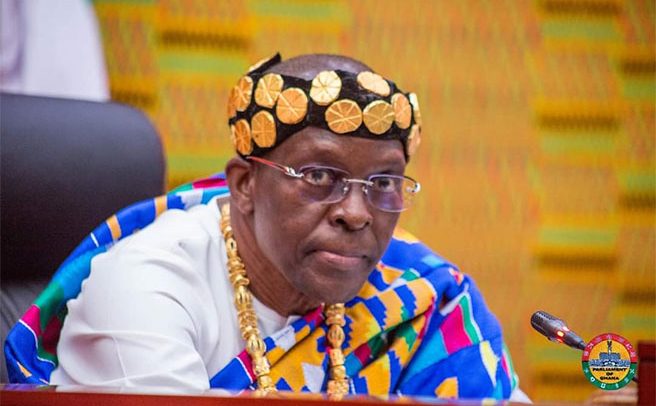Alban Bagbin
Speaker of Parliament, Alban Sumana Kingsford Bagbin, has indicated that Parliament will be unable to consider the President’s nominees in the “spirit of upholding the rule of law” until an interlocutory injunction brought against the House is determined by the Supreme Court.
According to him, he has received a process from the courts titled Rockson-Nelson Etse K. Dafeamekpor vrs the Speaker of Parliament and the Attorney General (Suit no. J1/12/2024) that restrains him (the Speaker) from proceeding with the vetting and approval of the names of the persons submitted by the President until the provisions of the constitution are met.
Addressing the House yesterday, Mr. Bagbin said the process was served on Parliament on March 19, 2024.
The Speaker blamed the move on President Nana Akufo-Addo, whom he accused of setting a precedent in refusing to accept the Human Sexual Rights and Family Values Bill, 2021 for assent or otherwise.
He argued that the President’s refusal to accept the transmission of the bill is, by all accounts, not supported by the constitutional and statutory provisions that guide Ghana’s legislative process.
“The Constitution clearly delineates the steps to be followed once a bill has been passed by Parliament, mandating the transmission of the bill to the President for assent or rejection,” he asserted.
Speaker Bagbin intimated that, “the refusal to even accept the bill for consideration falls outside the legal bounds established by our constitutional framework.”
“It is incumbent upon the President to accept the bill and take the necessary action within the prescribed constitutional limits, whether that action is assent, refusal, or referral to the Council of State for advice,” he stressed.
He noted that the Executive, has in the past proceeded with its actions, although, there has been pending before the court, injunction application against the state.
“Secondly, there must be a steadfast rejection of any attempts to unduly fetter or hinder the work of Parliament.
“The Parliament of Ghana operates as a crucial part of our democracy, embodying the will and voice of the people. Any efforts to obstruct its work disrespects this fundamental institution and threatens the principles of governance by consent and representation,” he said.
He told MPs that it is imperative for Parliament to remain vigilant against “setting dangerous precedents” that could potentially undermine the foundation of Ghana’s democracy.
“The rejection of a bill’s transmission without constitutional basis introduces a precarious deviation from established democratic practices and norms.
“Such actions, if left unchallenged, may embolden future attempts to circumvent the legislative process, thereby weakening the integrity and efficacy of our democratic institutions,” he stated.
He said the President ought to adhere to the lawful course of action by accepting the transmission of the bill.
“As we move forward, it is the collective responsibility of all branches of government, and indeed all citizens, to uphold the constitution and ensure that our democratic practices are not only preserved but strengthened,” he noted.
By Ernest Kofi Adu, Parliament House


